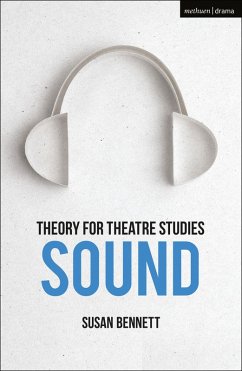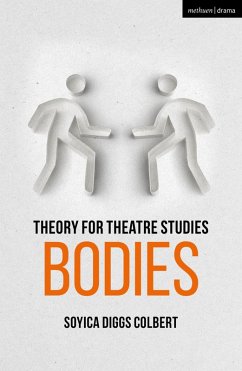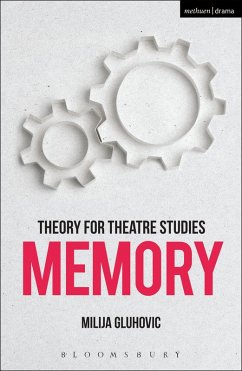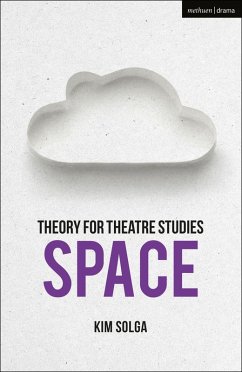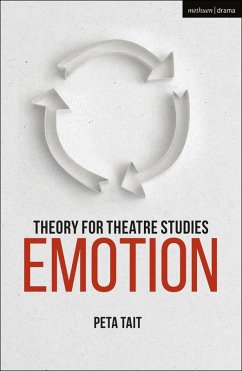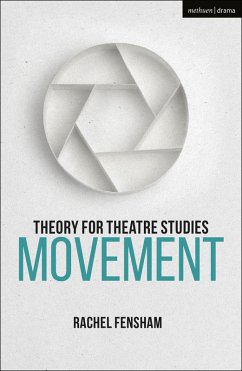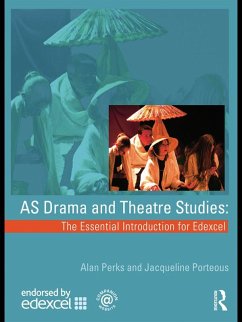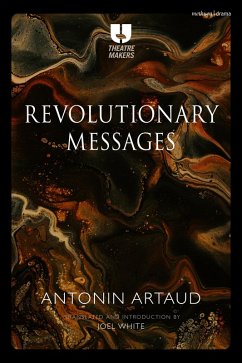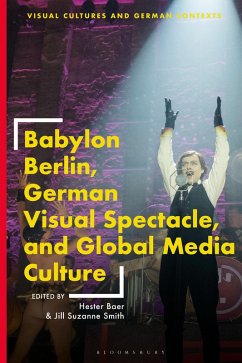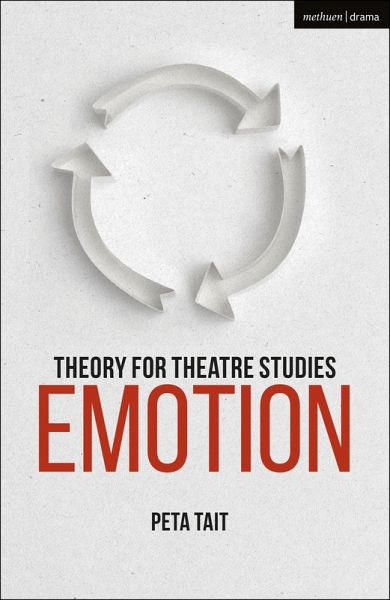
Theory for Theatre Studies: Emotion (eBook, PDF)
Versandkostenfrei!
Sofort per Download lieferbar
12,95 €
inkl. MwSt.
Weitere Ausgaben:

PAYBACK Punkte
6 °P sammeln!
Theory for Theatre Studies: Emotion explores how emotion is communicated in drama, theatre, and contemporary performance and therefore in society. From Aristotle and Shakespeare to Stanislavski, Brecht and Caryl Churchill, theatre reveals and, informs but also warns about the emotions. The term 'emotion' encompasses the emotions, emotional feelings, affect and mood, and the book explores how these concepts are embodied and experienced within theatrical practice and explained in theory. Since emotion is artistically staged, its composition and impact can be described and analysed in relation to...
Theory for Theatre Studies: Emotion explores how emotion is communicated in drama, theatre, and contemporary performance and therefore in society. From Aristotle and Shakespeare to Stanislavski, Brecht and Caryl Churchill, theatre reveals and, informs but also warns about the emotions. The term 'emotion' encompasses the emotions, emotional feelings, affect and mood, and the book explores how these concepts are embodied and experienced within theatrical practice and explained in theory. Since emotion is artistically staged, its composition and impact can be described and analysed in relation to interdisciplinary approaches. Readers are encouraged to consider how emotion is dramatically, aurally, and visually developed to create innovative performance. Case studies include: Medea, Twelfth Night, The Caucasian Chalk Circle, Ibsen's A Doll's House, and performances by Mabou Mines, Robert Lepage, Rimini Protokoll, Anna Deavere Smith, Socìetas Raffaello Sanzio, Marina Abramovic, and The Wooster Group. By way of these detailed case studies, readers will appreciate new methodologies and approaches for their own exploration of 'emotion' as a performance component. Online resources to accompany this book are available at https://www.bloomsbury.com/theory-for-theatre-studies-emotion-9781350030848/.




